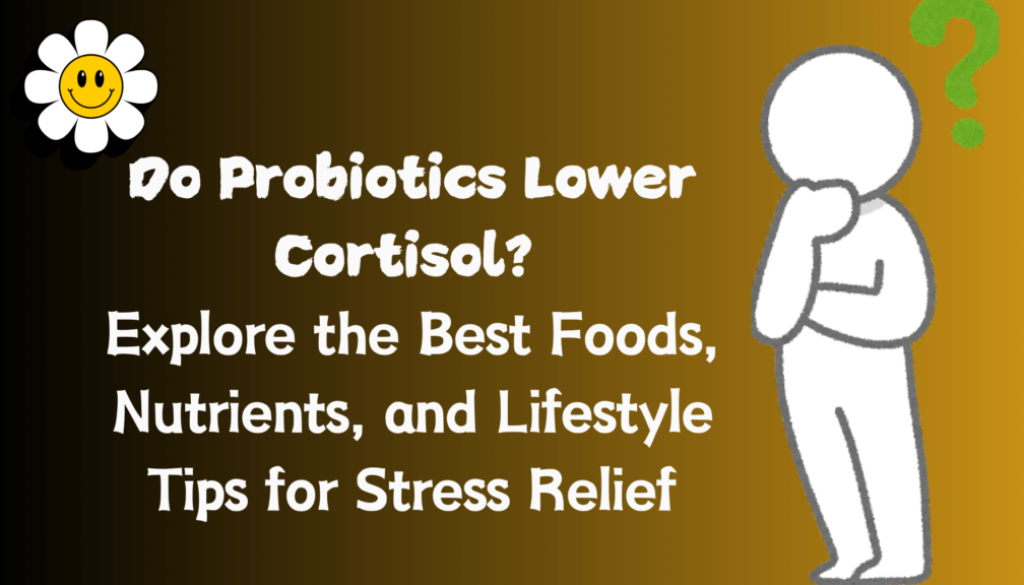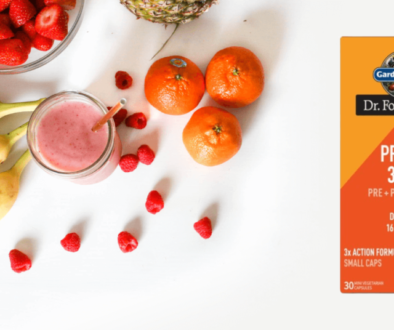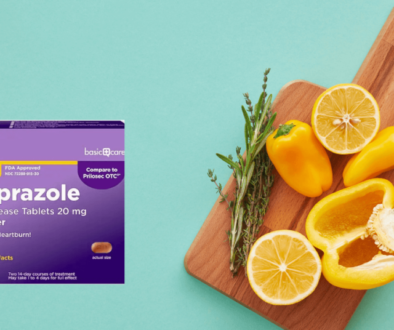Do Probiotics Lower Cortisol? Explore the Best Foods, Nutrients, and Lifestyle Tips for Stress Relief Explore now!!
wwwtheshe.com Probiotic's for women 0
How to Lower Cortisol Naturally
Introduction
Cortisol is a stress hormone we all produce, and if you’re here, you likely already know the importance of keeping it balanced. Today, we’re diving into how to naturally lower cortisol through dietary changes, while keeping our focus on what truly matters—stress management.
What is Cortisol?
Cortisol is a steroid hormone produced by the adrenal glands, located atop your kidneys. It is often released in response to stress, whether physical or emotional. Alongside cortisol, the adrenal glands release adrenaline, a neurotransmitter involved in the body’s “fight or flight” response. Together, these hormones help the body adapt to stressful situations.
However, in today’s world, chronic stress is prevalent, leading to sustained high cortisol levels. This can have a range of negative effects, including impaired immune function, increased abdominal fat, and disrupted sleep patterns. Understanding cortisol’s impact and finding ways to manage its levels is crucial for overall well-being.
The Role of Probiotics in Cortisol Management
Probiotics are live microorganisms that, when consumed in adequate amounts, provide health benefits to the host. They are commonly found in fermented foods like yogurt, kefir, sauerkraut, and kimchi. Research suggests that a healthy gut microbiome can significantly impact stress levels and cortisol production.
Gut-Brain Axis: The gut-brain axis is a bidirectional communication system between the gut and the brain. Probiotics help maintain a balanced gut microbiome, which can influence the production and regulation of neurotransmitters and hormones, including cortisol.
Inflammation Reduction: Chronic stress often leads to increased inflammation in the body, which can exacerbate cortisol imbalances. Probiotics help reduce inflammation by supporting a healthy gut environment, thus potentially lowering cortisol levels.
Mood Regulation: Some strains of probiotics have been shown to have anxiolytic (anxiety-reducing) effects. By supporting mental health, probiotics may indirectly contribute to more balanced cortisol levels.
How to Test Cortisol Levels
To test cortisol, some opt for blood or saliva tests, but these can be cumbersome, requiring samples every few hours. A more convenient method is using heart rate variability (HRV), which measures your autonomic nervous system and provides insight into your stress levels.
Now, let's talk about foods that can help you lower cortisol and reduce stress.
The Link Between Stress, Diet, and the Autonomic Nervous System
The autonomic nervous system regulates involuntary functions like digestion, heart rate, and breathing. It consists of two parts:
- Sympathetic nervous system (fight or flight): Activated during stress.
- Parasympathetic nervous system (rest and digest): Activated during relaxation.
If you’re dealing with stress, a common condition related to this system is diabetic dysautonomia, which results from high blood sugar levels disrupting nerve function, especially in the hands and feet.
The bottom line: Diet plays a massive role in managing stress and cortisol. Eating too much sugar and starch can spike cortisol, keeping your body stuck in a stress state. On the other hand, a ketogenic diet—low in carbs and high in healthy fats—can help regulate the autonomic nervous system and balance stress hormones.
Foods to Lower Cortisol and Reduce Stress
Diet plays a crucial role in managing cortisol levels. Certain foods can help regulate cortisol production and support overall hormonal balance.
Leafy Greens: Vegetables like spinach, kale, and Swiss chard are rich in magnesium and potassium. These minerals help regulate cortisol and support relaxation. Magnesium, in particular, is known for its calming effects and can help counteract the effects of stress.
Berries: Blueberries, strawberries, and raspberries are high in antioxidants, which help combat oxidative stress. Reducing oxidative stress can alleviate the burden on the adrenal glands, potentially lowering cortisol levels.
Fatty Fish: Salmon, mackerel, and sardines are excellent sources of omega-3 fatty acids. Omega-3s have been shown to reduce inflammation and lower cortisol levels. Including fatty fish in your diet can support overall stress management.
Nuts and Seeds: Almonds, walnuts, and flaxseeds are rich in healthy fats and magnesium. These nutrients can help balance cortisol levels and support overall adrenal function.
Herbal Teas: Herbal teas such as chamomile and ashwagandha have been used for centuries to reduce stress and promote relaxation. Ashwagandha, in particular, is known for its adaptogenic properties, which help the body adapt to stress and regulate cortisol levels
Nutrients Essential for Cortisol Regulation
Certain vitamins and minerals play a significant role in cortisol regulation:
Vitamin B12: Found in animal products like red meat, fish, and dairy, vitamin B12 is crucial for maintaining nerve health and energy levels. A deficiency in B12 can lead to increased stress and cortisol levels.
Choline: This nutrient is a precursor to acetylcholine, a neurotransmitter involved in regulating the parasympathetic nervous system (rest and digest). Eggs, especially egg yolks, and organ meats are excellent sources of choline.
Vitamin B1 (Thiamine): Thiamine supports nervous system function and can help manage stress. Sources include whole grains, legumes, and nutritional yeast.
Vitamin B5 (Pantothenic Acid): This vitamin is involved in the production of hormones, including cortisol. You can find vitamin B5 in foods like avocados, mushrooms, and sunflower seeds.
Vitamin D: Often considered a hormone rather than a vitamin, vitamin D plays a role in immune function and stress regulation. Sunlight exposure and fatty fish are good sources of vitamin D. A deficiency in vitamin D can contribute to higher cortisol levels.
Potassium and Magnesium: Both minerals help relax the body and regulate stress responses. Deep leafy greens, bananas, and avocados are excellent sources of potassium and magnesium.
Lifestyle Tips for Managing Cortisol Levels
In addition to dietary changes, several lifestyle modifications can help lower cortisol levels and manage stress more effectively:
Regular Exercise: Physical activity helps reduce cortisol levels and promotes the release of endorphins, which improve mood. Aim for a mix of aerobic exercises and strength training.
Adequate Sleep: Quality sleep is essential for cortisol regulation. Establish a regular sleep routine and ensure you get 7-9 hours of restful sleep each night.
Mindfulness and Meditation: Practicing mindfulness, meditation, or deep breathing exercises can help manage stress and reduce cortisol levels. These practices promote relaxation and mental clarity.
Social Connections: Building and maintaining strong social connections can provide emotional support and help reduce stress. Engage in activities that foster meaningful relationships and provide social support.
Hydration: Staying well-hydrated is essential for overall health and can help manage cortisol levels. Drink plenty of water throughout the day and avoid excessive caffeine and alcohol.
Probiotic Supplements to Consider:
Garden of Life Dr. Formulated Probiotics Once Daily: Known for its high-quality strains and one-a-day convenience, this supplement supports gut health and may help in managing stress. Check Now
Culturelle Digestive Health Probiotic: Featuring Lactobacillus rhamnosus GG, this probiotic helps maintain a healthy balance of gut bacteria, which can support stress reduction. Check Now
Renew Life Ultimate Flora Probiotic: With a high potency of multiple strains, this supplement helps support digestive health and overall well-being. Check Now
Bio-K Plus Probiotics: A reliable choice for potent, clinically tested strains that may aid in reducing stress and improving gut health Check Now
Wrapping Up
Managing cortisol levels is essential for maintaining overall health and well-being. By understanding the role of cortisol, incorporating probiotics, and focusing on a diet rich in essential nutrients, you can effectively support your body’s stress response. Foods high in vitamins, minerals, and healthy fats, along with lifestyle changes such as regular exercise and mindfulness practices, play a crucial role in balancing cortisol and promoting relaxation.
Remember, achieving optimal cortisol levels is a continuous journey. By making informed choices about your diet and lifestyle, you can take proactive steps towards managing stress and enhancing your overall quality of life.
Related Resources to Read:
“The Gut-Brain Connection: How Probiotics Influence Stress and Mental Health” – Read more
“Top Foods for Reducing Cortisol: A Comprehensive Guide” – Read more
“The Science Behind Probiotics: Benefits for Gut Health and Stress Management” – Read more
“Lifestyle Tips for Balancing Cortisol and Managing Stress Effectively” – Read more



